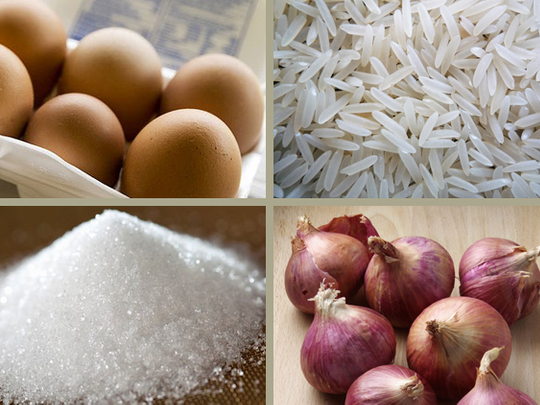
Abu Dhabi: The mushrooming of new retail outlets in the capital has given residents a wider range of shopping options, but wide differences in the prices of essential commodities is confusing residents.
Residents also told Gulf News that prices of consumer goods, especially food items, have increased in the last three years.
The steadily increasing cost of living also weighs on the grocery budgets of residents in the light of inflation.
Location also matters. While most families do their daily shopping close to home, they prefer to use hypermarkets and convenience stores further away on weekends. This is mainly because locally-sourced products tend to be significantly more affordable in bigger shopping outlets.
Gulf News visited a hypermarket, a cooperative and two supermarkets to compare prices in the week of April 6-10. We chose 19 products, and one widely-available subtype in each (For example, black unflavoured tea within the broad category of tea) and compared their prices.
While the cooperative was the cheapest among the four, products at the medium-range supermarket were priced only marginally higher. The hypermarket, on the other hand, offered a higher variety of products for different budgets, and this drove up the average price for each type of item. The most expensive buys were in luxury and high-end supermarkets located in posh residential areas.
Organic products cost much more than local varieties, with some organic fruits costing three times more. Hence, organic products were not considered when calculating average prices.
In general, imported fruits and vegetables were also more expensive.
Residents reported that their monthly budgets for groceries and toiletries ranged from Dh500 to Dh3,000, with the majority of their purchases being food. It is a commonly known fact that different outlets cater to different income ranges and tastes, and so residents visit the ones that most suit their needs whenever possible.
Gulf News spoke to a few residents to gauge their reactions:
Khalid Saleem, 36, a self-employed Pakistani expatriate, has been living in the UAE for 12 years.
He regularly purchases groceries from a hypermarket for his four-member family comprising his wife and two children.
Saleem feels that prices of essential food items increase by more than 20 per cent every year.
“We go grocery shopping three or four times a month and spend between Dh 4,000 to Dh5,000.”
Saleem said he needs to plan his grocery budget astutely “otherwise, the bill would shoot up exponentially!”
Haider Sulaiman, 54, a Sudanese professional in the hospitality industry, has been living in Abu Dhabi for 32 years.
He has a four-member family comprising his wife and two children. A major part of his monthly budget is spent on groceries.
Sulaiman feels prices of essential food items increase 20-30 per cent every year.
“There was a time when we used to pay Dh500 at a hypermarket for a [shopping] trolley full of essential items. Now, even after purchasing a few items that hardy fill a trolley, the bill comes to more than Dh1,000. I also have to buy items like milk from the neighbourhood grocery store every other day,” Sulaiman said.
Abdullah Mohammad, an Emirati father of four, spends around Dh5,000 each month on groceries. “My wife has started to work to help us cope with the rising expenses. Meat accounts for most of our grocery budget,” he said.
Dr Hesham Farahat, a 41-year-old Egyptian, has three children and prefers to shop at a Union Cooperative. He spends Dh5,000 on groceries every month, which account for most of his monthly budget.
“Prices of food items are increasing remarkably. If my food bill increases, the money left for everything else shrinks too. We also have to spend on the childrens’ education and other essential needs,” he said.
“Union Co-op has the best and cheapest prices. The items which take up most of our grocery budget are meat and detergents,” he added.
Hassan Al Hossani lives on his own and is just starting his career. He believes that his monthly grocery bill is too high for a single person. He also eats out a few times a week.
“I spend around Dh1,000 on food items each month. Meat is the most expensive item and takes up most of the grocery budget,” he said.
Samia Badih lives in Abu Dhabi with her husband and two babies. She said that around 15 per cent of their salaries is spent on groceries.
“I have noticed that my weekly grocery bill is increasing. We are a family of four and food is an important element. We have two babies and their needs, including diapers and baby food, are definitely high on the list of expensive items. Although I don’t usually compare prices, I am aware of the different pricing in supermarkets. The price variations depend on the item,” she added.












